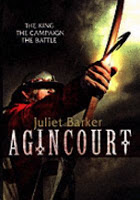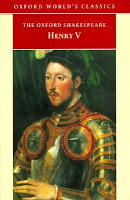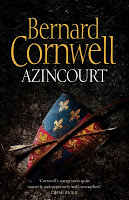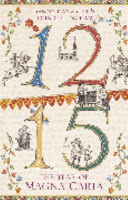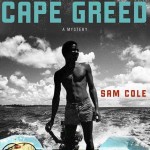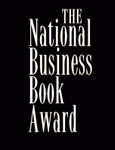Immortalized by Shakespeare in Henry V, the Battle of Agincourt, a most significant event in medieval England is brought to life once again in Agincourt: The King, the Campaign, the Battle by Juliet Barker. Henry V was utterly convinced of his moral right to rule France through his great-grandfather Edward III. To his credit, he gave France every opportunity to come round to his way of thinking. Once negotiations broke down, the path to war was set.
I guess it’s not too much of a spoiler to say that the English won. This book explores the years leading up to this landmark battle as well as concerning itself with the conflict itself. Agincourt brings to life this defining moment in English history. We see a different Henry than Shakespeare’s Prince Hal. Rather than the wild young man, we see a Henry who was tested in battle in his youth. He was pious and, above all, fair. Barker shows him to be a meticulous administrator who, not only personally orchestrated the invasion, but lead the charge.
This book comes to life in its personal details. Studiously researched, this is work of scholarly history which has been made accessible to a non-academic audience with its fascinating details of everyday life. Fans of biographies would enjoy this book for the human face Barker puts on the battle. She goes beyond strategy to paint a portrait of the battle from the perspective of the foot soldier, the archer and the king. The details of life in the 15th century are compelling. Did you know, for instance, that wives of skilled tradesmen regularly worked alongside their husbands performing the same tasks they did? English men were legally required to practice archery on Sundays, developing their strength, until they became the most feared archers in Europe. Barker’s Agincourt is more that just an account of the battle, it is also a view of life in the 15th century.
In fiction there is Bernard Cornwell’s Azincourt. (from the publisher) -“A unique novel, looking at one the greatest battles, a battle that was a turning point in history, from many points of view, by a master storyteller. Bernard Cornwell has been thinking about this subject for years. He has long wanted to write a book about a single battle, the events that lead up to it, the actual days in the battle and the aftermath from multiple viewpoints. Agincourt, fought on October 25th 1415, on St Crispin’s Day, is one of the best known battles, in part through the brilliant depiction of it in Shakespeare’s Henry V, in part because it was a brilliant and unexpected English victory and in part because it was the first battle won by the use of the longbow. This was a weapon developed in this form only by the English – parishes were forced to train boys from as young as eight daily – and enabled them to dominate the European battlefields for the rest of the century. Lively historical characters abound on all sides but in Bernard Cornwell’s hands the fictional characters, horsemen, archers, nobles, peasants are authentic and vivid, and the hour by hour view of the battle is dramatic and gripping.”
In 1215: The Year of the Magna Carta by Danny Danziger is another opportunity to immerse yourself in the details of a defining moment of history. (from the publisher) – “On 15 June 1215, rebel barons forced King John to meet them at Runnymede. They did not trust the King, so he was not allowed to leave until his seal was attached to the charter in front of him. This was Magna Carta. It was a revolutionary document. Never before had royal authority been so fundamentally challenged. Nearly 800 years later, two of the charter’s sixty-three clauses are still a ringing expression of freedom for mankind: ‘To no one will we sell, to no one will we deny or delay right or justice’. And: ‘No free man shall be taken or imprisoned or in any way ruined, except by the lawful judgement of his peers or by the law of the land’. “1215 – The Year of Magna Carta” explores what it was like to be alive in that momentous year. Political power struggles are interwoven with other issues – fashion, food, education, medicine, religion, sex. In many areas, it was a time of innovation and change. Windmills were erected, spectacles were invented. Dozens of new towns were founded. Oxford became the first university in England, and the great cathedrals of Salisbury and Lincoln were built. Whether describing matters of state or domestic life, this is a treasure house of a book, rich in detail and full of enthralling insights into the medieval world.”

